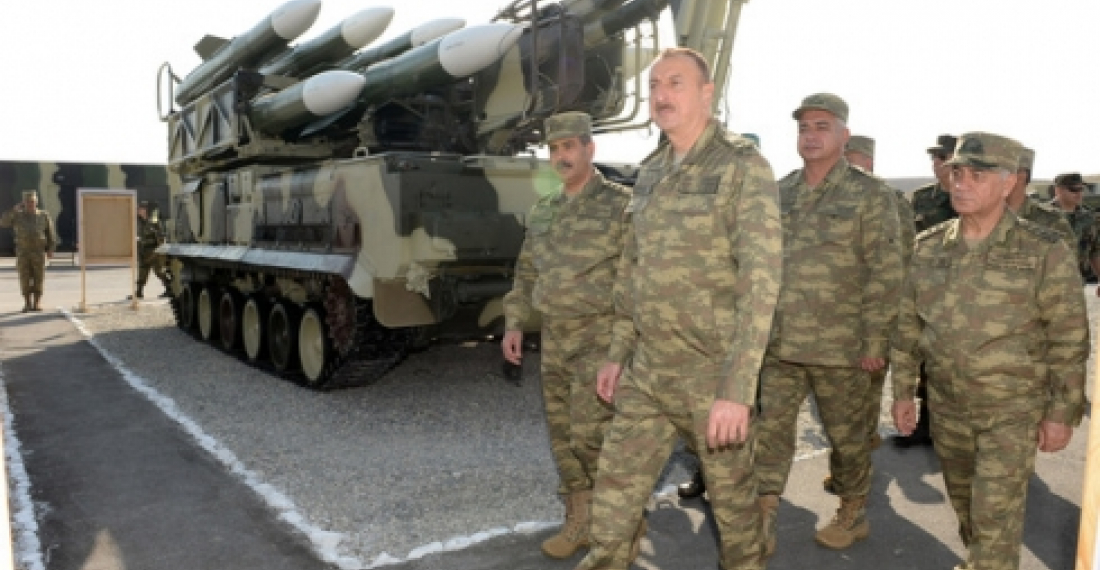Azerbaijan marked Armed Forces Day on 26 June - the day being also the 96th anniversary of the establishment of the first Azerbaijani Army during Azerbaijan's first period of independence after World War I.
To mark the occasion large scale exercises were held, involving 4000 personnel, 80 tanks, around 100 armored vehicles, around 80 artillery systems, 10 fighting jets, and around 20 military and transport helicopters.
Azerbaijani President Ilham Aliev watched the exercises, accompanied by the Minister of Defence and other senior officials. he later inspected military equipment and presented medals.
On Wednesday, Azerbaijan Defence Minister Colonel-General Zakir Hasanov told Azertag state news agency that the first draft of the Armed Forces Development Strategy has been prepared as part of the "Azerbaijan 2020: Look into the Future" concept of development. The draft will be submitted to the government for approval.
Hasanov also told the agency that "amendments and changes to supply standards were also prepared to improve clothing provision for military personnel especially privates and non commissioned officers. New rules on wearing and types of military uniforms were also submitted for the consideration of government.
Since taking over the leadership of the Ministry of Defence a few months ago Hasanov has moved forward a programme of reform and modernisation, amid a crackdown on corruption. Several senior military officials have been charged with corruption and are awaiting trail.
source: commonspace.eu
Photo: Azerbaijan President Ilham Aliev inspecting equipment during large scale military exercises marking Armed Forces Day on 26 June 2014. (picture courtesy of the Press Service of the President of Azerbaijan).







